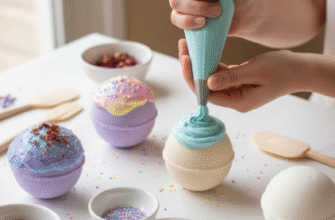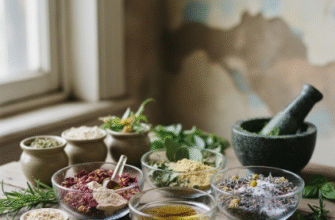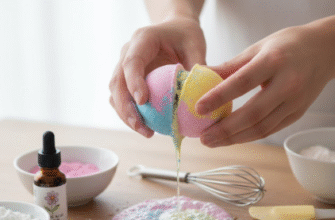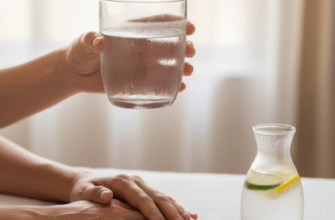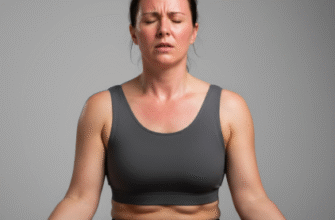The allure of whipping up your own skincare concoctions in the kitchen is undeniable. Pinterest boards overflow with recipes for face masks made from avocado and honey, scrubs from sugar and oil, and toners from apple cider vinegar. It feels natural, potentially cheaper, and gives a sense of control over what goes onto your skin. But beyond the simple pleasure of a DIY spa session, can these homemade remedies genuinely tackle specific, persistent skin issues like acne, dark spots, or persistent dryness? It’s a question worth exploring, separating the potential from the pitfalls.
The Charm of the Homemade Approach
Why do so many people turn to DIY skincare? Several factors fuel this trend. Firstly, there’s the desire for natural ingredients. In an era of complex ingredient lists and concerns about synthetic chemicals, using simple items from the pantry feels safer and more wholesome. Secondly, the potential for cost savings is attractive. A high-end serum can cost a small fortune, while a banana and some oatmeal seem like a bargain. Thirdly, it offers customization. You can tweak recipes based on what you have or what you *think* your skin needs. Lastly, there’s an element of fun and self-care involved in the process itself – mixing, applying, and relaxing.
These motivations are understandable. For individuals with generally balanced skin seeking a hydration boost or a gentle exfoliation now and then, some DIY approaches might offer mild, temporary benefits. A simple oatmeal mask can be soothing, honey offers humectant properties (drawing moisture), and a carefully used sugar scrub can slough off some dead skin cells.
Can DIY Help with Specific Skin Problems? A Closer Look
This is where things get complicated. Moving beyond general skin maintenance and attempting to treat specific, often chronic or inflammatory skin conditions with kitchen ingredients requires a significant reality check. While the internet might be full of anecdotal success stories, the science (and potential risks) tells a different story.
Mild Dryness and Dullness
For skin that’s just feeling a bit parched or lacking radiance, some DIY ingredients *might* offer temporary relief.
- Hydrators: Honey, yogurt, aloe vera gel (fresh from the plant, used cautiously), and certain oils like olive or jojoba oil can provide surface hydration and lipids. They act as emollients and humectants, making the skin feel softer and smoother for a short time.
- Gentle Exfoliants: Finely ground oatmeal or very fine sugar, used with minimal pressure and lubrication (like oil or honey), can offer mild physical exfoliation. Yogurt contains lactic acid, a gentle alpha-hydroxy acid (AHA), which might provide very subtle exfoliation and brightening over time, though concentrations are low and variable.
Acne and Breakouts
This is one of the most common issues people try to tackle with DIY remedies, often using ingredients like tea tree oil, apple cider vinegar, lemon juice, or baking soda. While some ingredients, like tea tree oil, do have demonstrated antimicrobial properties in scientific studies, the context is crucial.
- Tea Tree Oil: Needs to be significantly diluted (typically to 5% or less) to avoid severe irritation. Using it undiluted can cause burns and sensitivity. Its effectiveness compared to standard acne treatments like benzoyl peroxide or salicylic acid is generally less potent and slower.
- Apple Cider Vinegar/Lemon Juice: These are highly acidic. While acidity can combat some bacteria, their low pH can severely disrupt the skin’s natural protective barrier (the acid mantle), leading to irritation, inflammation, dryness, and potentially *more* breakouts. Lemon juice also causes photosensitivity, increasing the risk of sunburn and dark spots.
- Baking Soda: This is highly alkaline, the opposite problem to acidic ingredients. It strips the skin’s natural oils and disrupts the acid mantle, causing significant irritation and damage.
Important Information on DIY Acne Treatments: Attempting to treat moderate to severe acne with DIY concoctions can be counterproductive. Ingredients like undiluted essential oils, harsh acids (lemon juice), or alkalis (baking soda) can severely irritate the skin, damage its protective barrier, and worsen inflammation. Delaying effective, evidence-based treatment can also lead to more significant scarring.
Hyperpigmentation (Dark Spots)
Lemon juice is often touted online as a natural skin lightener for dark spots (post-acne marks, sun spots). However, as mentioned, its acidity and photosensitizing effects make it a risky choice, potentially causing burns or even worsening hyperpigmentation (post-inflammatory hyperpigmentation). Turmeric masks are another popular DIY, and while curcumin (turmeric’s active compound) has anti-inflammatory properties, its ability to significantly lighten established hyperpigmentation when applied topically in a homemade mask is questionable and lacks robust scientific backing. Furthermore, it can temporarily stain the skin yellow. Effective treatment for hyperpigmentation usually involves ingredients specifically formulated for stability and penetration, such as Vitamin C (specific forms like L-Ascorbic Acid in stable formulations), niacinamide, retinoids, or alpha arbutin, often combined with sun protection and sometimes professional procedures.
Sensitive Skin, Eczema, and Rosacea
Using DIY skincare on skin prone to sensitivity, eczema, or rosacea is generally strongly discouraged. These conditions involve a compromised skin barrier and heightened reactivity. Introducing unpredictable ingredients from the kitchen – with variable pH levels, potential allergens (even natural ones), and lack of preservatives – is highly likely to trigger flare-ups, irritation, and allergic reactions. Managing these conditions effectively requires gentle, specifically formulated products, often recommended by a dermatologist, that support the skin barrier and reduce inflammation.
Anti-Aging Concerns
While hydration from DIY masks (using ingredients like avocado, honey, or oils) can temporarily plump the skin and make fine lines appear less noticeable, homemade remedies lack the powerful, scientifically validated ingredients needed for significant anti-aging effects. Key players in effective anti-aging skincare include:
- Retinoids: Vitamin A derivatives that promote cell turnover and collagen production.
- Peptides: Signal cells to produce more collagen or perform other functions.
- Stable Vitamin C Serums: Potent antioxidants that protect against damage and can boost collagen.
- Specific Acids (like Glycolic Acid): Exfoliate effectively and can stimulate collagen.
The Hidden Dangers of DIY Skincare
Beyond ineffectiveness for specific issues, DIY skincare carries several risks:
Ingredient Purity and Contamination: Kitchen ingredients aren’t sterile. Homemade concoctions lack preservatives, making them breeding grounds for bacteria, mold, and yeast, especially if stored or prepared improperly. Applying contaminated products can lead to infections and breakouts.
Incorrect pH Levels: Skin has a naturally acidic pH (around 4.5-5.5). Many DIY ingredients drastically alter this balance. Lemon juice (pH 2) and baking soda (pH 9) are prime examples of ingredients that can strip the skin and damage its protective mantle, leading to irritation and sensitivity.
Irritation and Allergic Reactions: Natural doesn’t mean safe or hypoallergenic. Many plant-derived substances, including essential oils, citrus extracts, cinnamon, and even common fruits and vegetables, can cause contact dermatitis or allergic reactions in susceptible individuals. Patch testing is essential but doesn’t guarantee safety on larger areas or with repeated use.
Photosensitivity: Certain plant compounds, especially found in citrus fruits (lemon, lime, bergamot) and celery, can cause a phototoxic reaction when skin is exposed to UV light after application. This can result in severe burns, blistering, and long-lasting hyperpigmentation.
Lack of Efficacy: Many beneficial molecules in plants or foods are too large to penetrate the skin barrier effectively or are present in concentrations too low to make a difference. Furthermore, active ingredients like Vitamin C are notoriously unstable and oxidize quickly when exposed to air and light, rendering homemade preparations ineffective shortly after mixing.
Finding the Right Balance: When DIY Might Fit
So, is there any place for DIY skincare? Perhaps. For individuals with robust, non-sensitive skin, occasional use of very simple, gentle preparations might be harmless and enjoyable. Think:
- A soothing oatmeal and water paste.
- A honey mask for temporary hydration.
- A very gentle scrub with finely ground particles (like almond flour) used infrequently and with extreme care.
Verified Approach: While DIY skincare can be a fun activity, remember that cosmetic science plays a vital role in product effectiveness and safety. Formulators carefully select stable ingredients, ensure appropriate concentrations, balance pH levels, use penetration enhancers, and include preservatives to create products that are both safe and capable of delivering results for specific concerns like acne or hyperpigmentation. Always patch-test any new product, whether DIY or store-bought.
Conclusion: Manage Expectations and Prioritize Skin Health
Returning to the original question: can DIY skincare help with specific skin issues? The honest answer is: generally, no, not reliably or safely for significant problems. While simple homemade masks or scrubs might offer fleeting hydration or mild exfoliation for uncomplicated skin, they lack the scientific formulation, targeted ingredients, stability, and appropriate concentrations needed to effectively address conditions like persistent acne, hyperpigmentation, eczema, rosacea, or signs of aging. Furthermore, the risks of irritation, barrier disruption, contamination, and even worsening the initial problem are considerable.
If you enjoy the process of DIY skincare, stick to very simple, gentle ingredients known to be low-risk for your skin type, always patch test, use immediately, and maintain realistic expectations. For specific, persistent skin concerns, investing in well-formulated products with proven ingredients or consulting a dermatologist is invariably the safer and more effective path to achieving lasting skin health.

